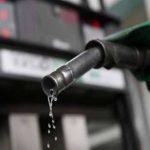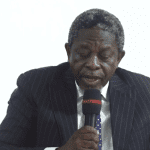Following the public outcry, which greeted the recent increase in petrol pump price, President Muhammadu Buhari says the removal of subsidy on petrol and electricity was to eliminate corruption associated with subsidies.
In a statement released by the President’s spokesman Garba Shehu explained that the removal of subsidy on petrol and electricity was to “stop the mismanagement of taxpayer money”
The removal of the subsidy has led to the increase in petrol and electricity prices across Nigeria.
While retail price of petrol increased by about 10 per cent to about N160 per litre, the average unit cost of electricity increased by almost 100 per cent to about N62 per kilowatt hour.
While defending the removal of the subsidy amidst the COVID-19 pandemic, the Presidency said;
“There is nothing new in the fact that the country is today fighting multiple challenges along with COVID-19, including low earnings, near-collapse of the oil market, floods, threats of terrorism and banditry but the challenges notwithstanding, a good government must take decisions for the people’s good.”
The statement added that President Buhari is pushing development goals not politics and that history will judge him in favourable terms rather than his critics in the new media and the opposition.
Following the public outcry, which greeted the recent increase in petrol pump price, President Muhammadu Buhari says the removal of subsidy on petrol and electricity was to eliminate corruption associated with subsidies.
In a statement released by the President’s spokesman Garba Shehu explained that the removal of subsidy on petrol and electricity was to “stop the mismanagement of taxpayer money”
The removal of the subsidy has led to the increase in petrol and electricity prices across Nigeria.
While retail price of petrol increased by about 10 per cent to about N160 per litre, the average unit cost of electricity increased by almost 100 per cent to about N62 per kilowatt hour.
While defending the removal of the subsidy amidst the COVID-19 pandemic, the Presidency said;
“There is nothing new in the fact that the country is today fighting multiple challenges along with COVID-19, including low earnings, near-collapse of the oil market, floods, threats of terrorism and banditry but the challenges notwithstanding, a good government must take decisions for the people’s good.”
The statement added that President Buhari is pushing development goals not politics and that history will judge him in favourable terms rather than his critics in the new media and the opposition.
Following the public outcry, which greeted the recent increase in petrol pump price, President Muhammadu Buhari says the removal of subsidy on petrol and electricity was to eliminate corruption associated with subsidies.
In a statement released by the President’s spokesman Garba Shehu explained that the removal of subsidy on petrol and electricity was to “stop the mismanagement of taxpayer money”
The removal of the subsidy has led to the increase in petrol and electricity prices across Nigeria.
While retail price of petrol increased by about 10 per cent to about N160 per litre, the average unit cost of electricity increased by almost 100 per cent to about N62 per kilowatt hour.
While defending the removal of the subsidy amidst the COVID-19 pandemic, the Presidency said;
“There is nothing new in the fact that the country is today fighting multiple challenges along with COVID-19, including low earnings, near-collapse of the oil market, floods, threats of terrorism and banditry but the challenges notwithstanding, a good government must take decisions for the people’s good.”
The statement added that President Buhari is pushing development goals not politics and that history will judge him in favourable terms rather than his critics in the new media and the opposition.
Following the public outcry, which greeted the recent increase in petrol pump price, President Muhammadu Buhari says the removal of subsidy on petrol and electricity was to eliminate corruption associated with subsidies.
In a statement released by the President’s spokesman Garba Shehu explained that the removal of subsidy on petrol and electricity was to “stop the mismanagement of taxpayer money”
The removal of the subsidy has led to the increase in petrol and electricity prices across Nigeria.
While retail price of petrol increased by about 10 per cent to about N160 per litre, the average unit cost of electricity increased by almost 100 per cent to about N62 per kilowatt hour.
While defending the removal of the subsidy amidst the COVID-19 pandemic, the Presidency said;
“There is nothing new in the fact that the country is today fighting multiple challenges along with COVID-19, including low earnings, near-collapse of the oil market, floods, threats of terrorism and banditry but the challenges notwithstanding, a good government must take decisions for the people’s good.”
The statement added that President Buhari is pushing development goals not politics and that history will judge him in favourable terms rather than his critics in the new media and the opposition.
Following the public outcry, which greeted the recent increase in petrol pump price, President Muhammadu Buhari says the removal of subsidy on petrol and electricity was to eliminate corruption associated with subsidies.
In a statement released by the President’s spokesman Garba Shehu explained that the removal of subsidy on petrol and electricity was to “stop the mismanagement of taxpayer money”
The removal of the subsidy has led to the increase in petrol and electricity prices across Nigeria.
While retail price of petrol increased by about 10 per cent to about N160 per litre, the average unit cost of electricity increased by almost 100 per cent to about N62 per kilowatt hour.
While defending the removal of the subsidy amidst the COVID-19 pandemic, the Presidency said;
“There is nothing new in the fact that the country is today fighting multiple challenges along with COVID-19, including low earnings, near-collapse of the oil market, floods, threats of terrorism and banditry but the challenges notwithstanding, a good government must take decisions for the people’s good.”
The statement added that President Buhari is pushing development goals not politics and that history will judge him in favourable terms rather than his critics in the new media and the opposition.
Following the public outcry, which greeted the recent increase in petrol pump price, President Muhammadu Buhari says the removal of subsidy on petrol and electricity was to eliminate corruption associated with subsidies.
In a statement released by the President’s spokesman Garba Shehu explained that the removal of subsidy on petrol and electricity was to “stop the mismanagement of taxpayer money”
The removal of the subsidy has led to the increase in petrol and electricity prices across Nigeria.
While retail price of petrol increased by about 10 per cent to about N160 per litre, the average unit cost of electricity increased by almost 100 per cent to about N62 per kilowatt hour.
While defending the removal of the subsidy amidst the COVID-19 pandemic, the Presidency said;
“There is nothing new in the fact that the country is today fighting multiple challenges along with COVID-19, including low earnings, near-collapse of the oil market, floods, threats of terrorism and banditry but the challenges notwithstanding, a good government must take decisions for the people’s good.”
The statement added that President Buhari is pushing development goals not politics and that history will judge him in favourable terms rather than his critics in the new media and the opposition.
Following the public outcry, which greeted the recent increase in petrol pump price, President Muhammadu Buhari says the removal of subsidy on petrol and electricity was to eliminate corruption associated with subsidies.
In a statement released by the President’s spokesman Garba Shehu explained that the removal of subsidy on petrol and electricity was to “stop the mismanagement of taxpayer money”
The removal of the subsidy has led to the increase in petrol and electricity prices across Nigeria.
While retail price of petrol increased by about 10 per cent to about N160 per litre, the average unit cost of electricity increased by almost 100 per cent to about N62 per kilowatt hour.
While defending the removal of the subsidy amidst the COVID-19 pandemic, the Presidency said;
“There is nothing new in the fact that the country is today fighting multiple challenges along with COVID-19, including low earnings, near-collapse of the oil market, floods, threats of terrorism and banditry but the challenges notwithstanding, a good government must take decisions for the people’s good.”
The statement added that President Buhari is pushing development goals not politics and that history will judge him in favourable terms rather than his critics in the new media and the opposition.
Following the public outcry, which greeted the recent increase in petrol pump price, President Muhammadu Buhari says the removal of subsidy on petrol and electricity was to eliminate corruption associated with subsidies.
In a statement released by the President’s spokesman Garba Shehu explained that the removal of subsidy on petrol and electricity was to “stop the mismanagement of taxpayer money”
The removal of the subsidy has led to the increase in petrol and electricity prices across Nigeria.
While retail price of petrol increased by about 10 per cent to about N160 per litre, the average unit cost of electricity increased by almost 100 per cent to about N62 per kilowatt hour.
While defending the removal of the subsidy amidst the COVID-19 pandemic, the Presidency said;
“There is nothing new in the fact that the country is today fighting multiple challenges along with COVID-19, including low earnings, near-collapse of the oil market, floods, threats of terrorism and banditry but the challenges notwithstanding, a good government must take decisions for the people’s good.”
The statement added that President Buhari is pushing development goals not politics and that history will judge him in favourable terms rather than his critics in the new media and the opposition.














